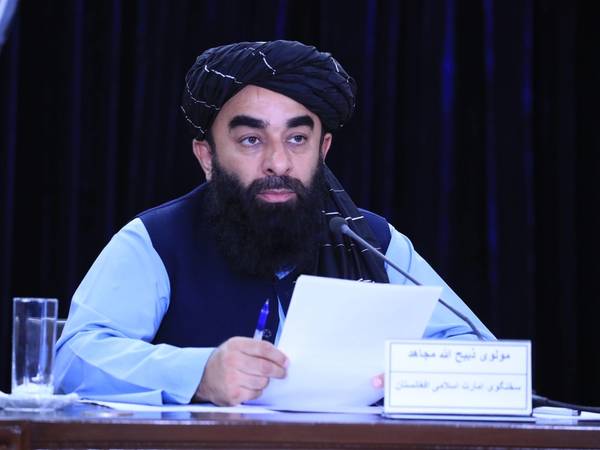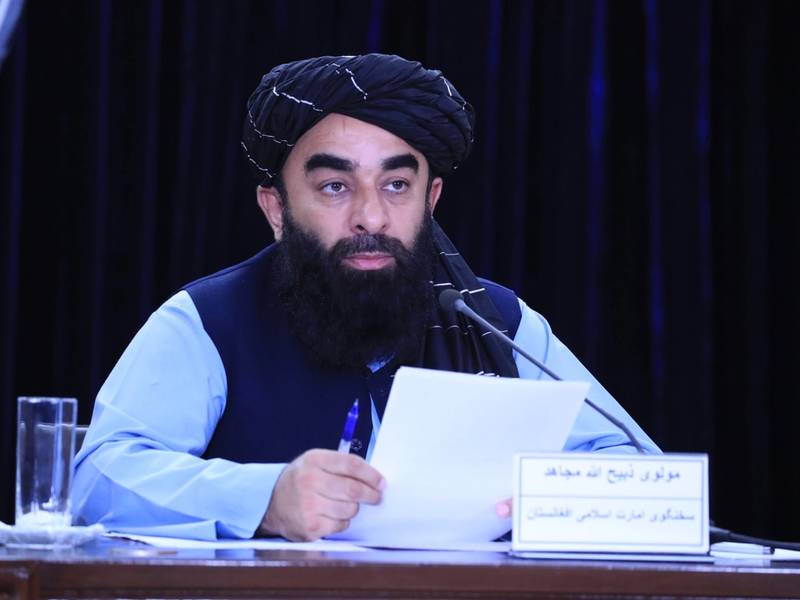Taliban spokesperson Zabihullah Mujahid has accused Pakistan’s military of fuelling instability to enable a United States return to Bagram Air Base, claiming that Islamabad’s recent actions are aimed at creating chaos.
Mujahid said Pakistan’s airstrikes on Kabul, the failure of peace talks, and repeated threats show that Islamabad is “seeking a crisis so the US can easily come back.”
In an interview with Khyber TV, Mujahid alleged that while the United States “wants to reclaim Bagram,” Pakistan is simultaneously bombing Afghan territory, violating Afghan sovereignty, and undermining peace efforts. He said these actions show Pakistan is “muddying the waters to catch fish.”
He added that under such conditions, the ceasefire cannot be trusted, arguing that “one side has no independence and merely implements others’ policies.” Mujahid maintained that Pakistan’s military is “laying the groundwork” for an American return to Afghanistan.
Civil–Military Divide
Mujahid claimed Pakistan’s civilian and military leaderships are pursuing separate agendas. According to him, the civilian government wants to improve relations with Kabul, while the military establishment seeks to sabotage those ties.
He accused Islamabad of contradictory policies, saying it sends special envoys to Kabul while at the same time launching airstrikes on Afghan soil.
The Taliban spokesperson also condemned Pakistan’s treatment of Afghan refugees, saying authorities are forcibly deporting migrants while closing border crossings such as Torkham. He described these actions as irrational and unprecedented, claiming that Pakistan shuts crossings at the slightest incident, which he said shows the limits of its power.
Mujahid stressed that the Taliban does not trust Pakistan’s assurances or commitments.
Border Control and Security
Addressing the upcoming talks in Türkiye, Mujahid said Pakistan has asked the Taliban to prevent militant attacks inside its territory, a demand he described as beyond the group’s capacity. Still, he said, the Taliban remains committed to curbing any attacks on Pakistan from Afghan soil.
He added that securing the Afghan–Pakistani border is extremely difficult because of its rugged terrain and dense forests, noting that effective control requires major financial resources. “Even the US and Pakistan,” he said, “have failed to fully secure the frontier.”
Mujahid emphasised that border security is Pakistan’s responsibility, though the Taliban is ready to cooperate if Islamabad shares intelligence information.
He also denied the presence of TTP leaders including Noor Wali Mehsud and Hafiz Gul Bahadur inside Afghanistan, and criticised Pakistan’s defence minister for making threatening remarks during the Istanbul talks.
“Afghans should never be spoken to in the language of threats,” Mujahid warned.

